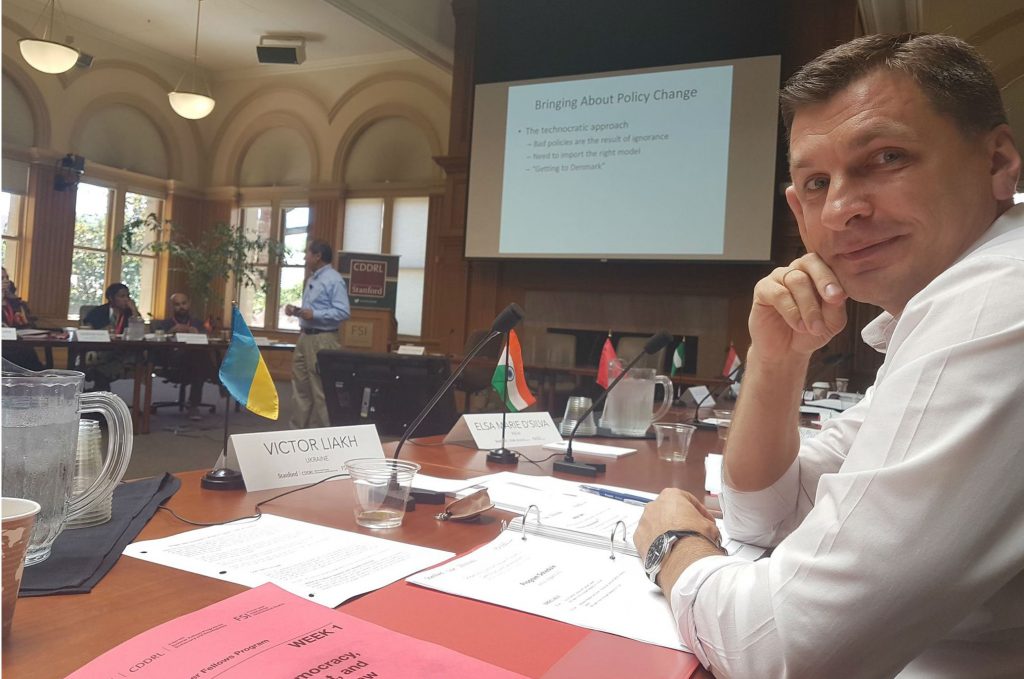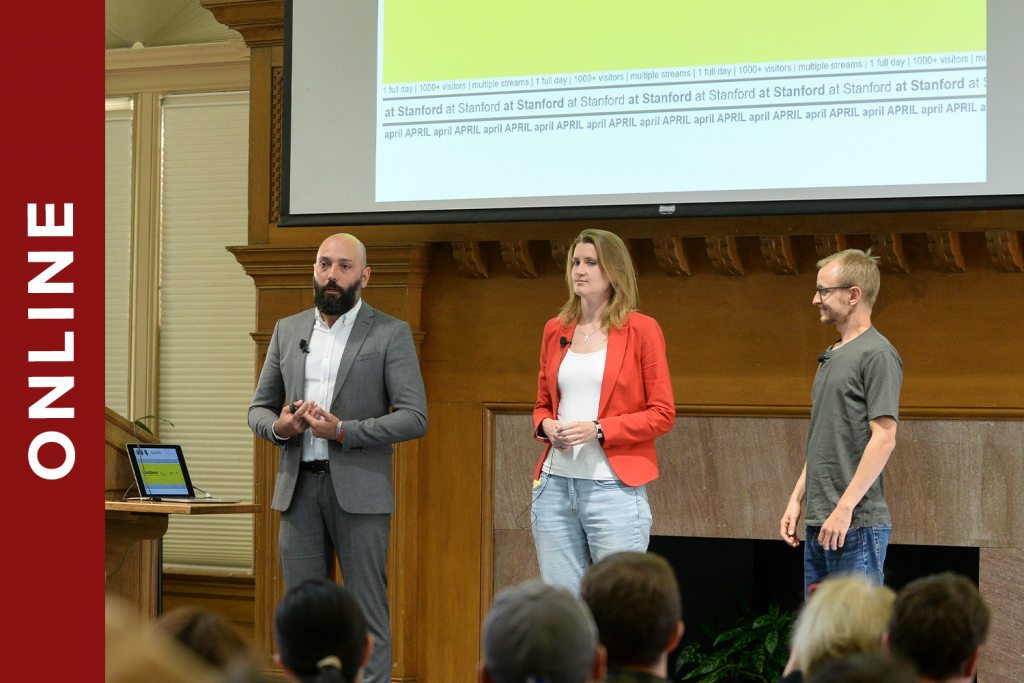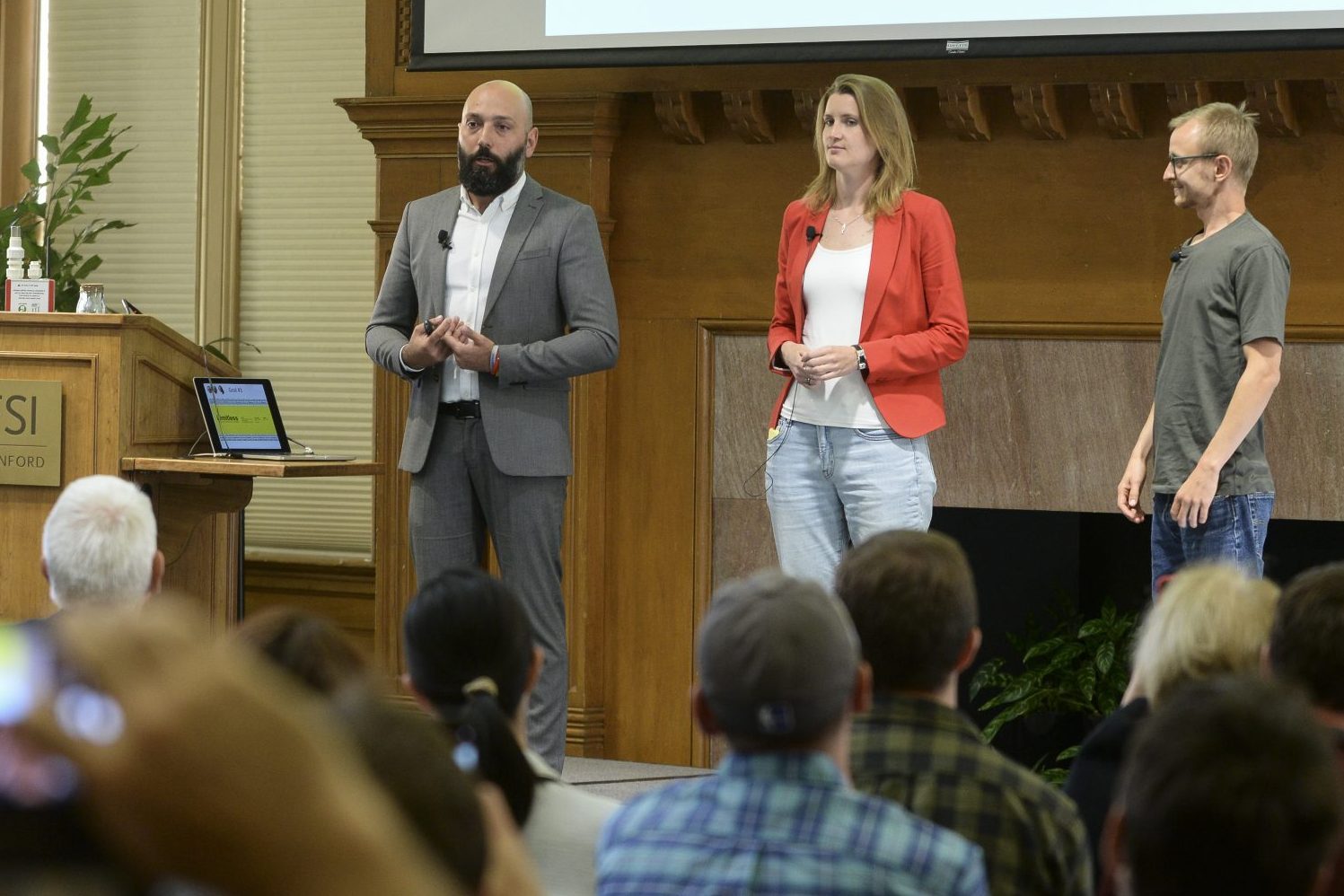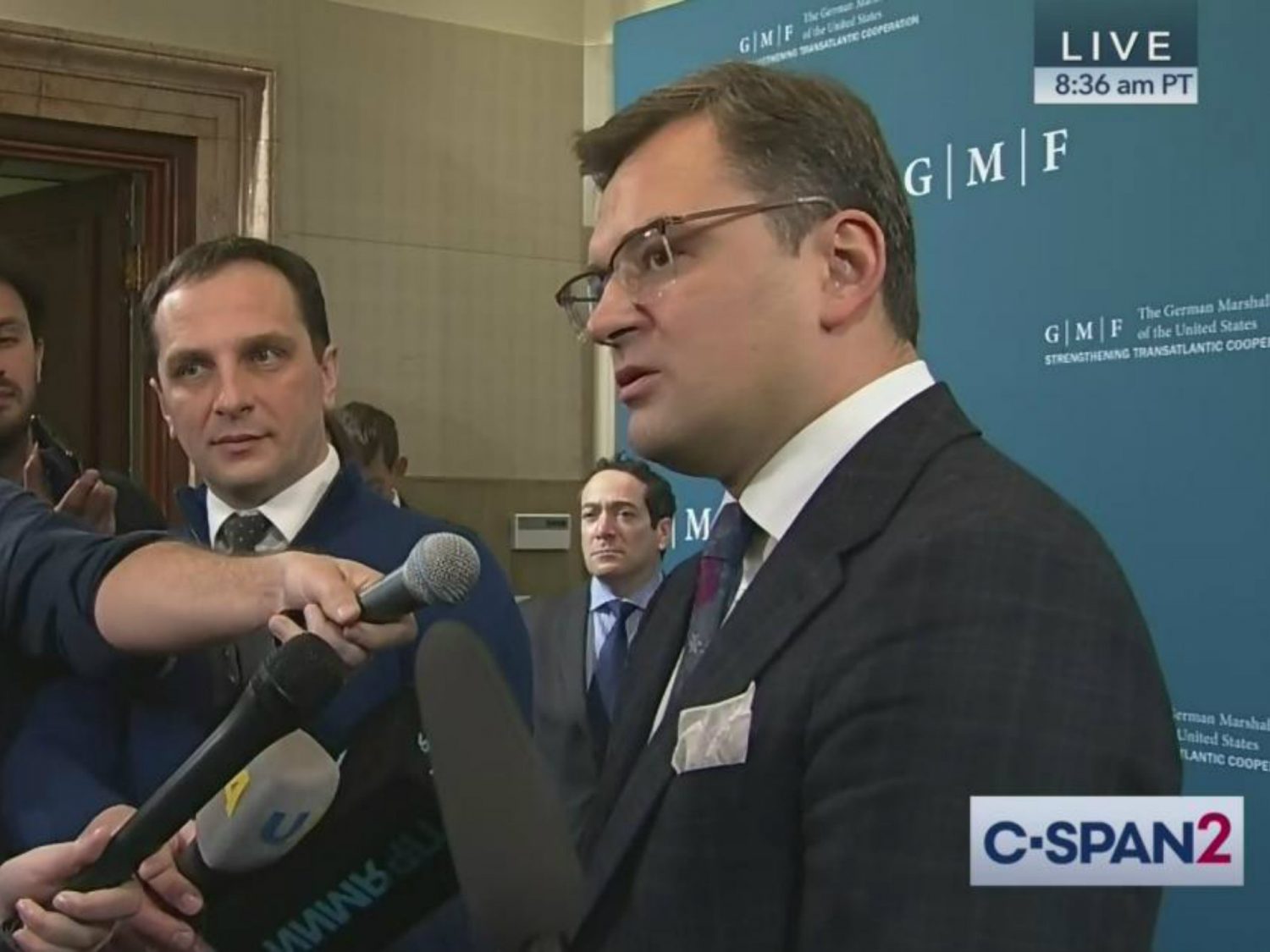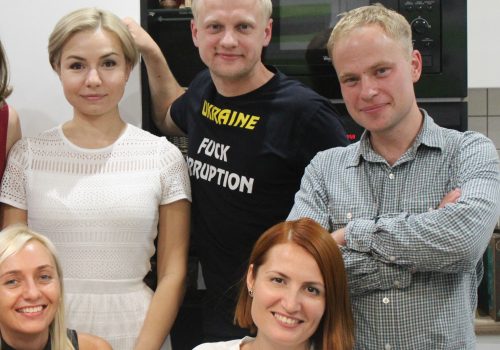Victor Liakh and Olena Sotnyk are returning from California to Kyiv bursting with new ideas and energy. They just participated in Stanford University’s 2017 Draper Hills Summer Fellowship, which brings together leaders who are advancing democracy in some of the most challenging corners of the world. This was the first year the program included two participants from Ukraine since 2009. Liakh, 43, is the president of East Europe Foundation, a nongovernmental organization in Kyiv, and Sotnyk, 34, is a member of parliament and lawyer.
Sponsored by Stanford’s Center on Democracy, Development, and the Rule of Law, the fellows studied with top experts on democracy, including Larry Diamond and Francis Fukuyama. Fellows also met former US Secretary of State Condoleezza Rice and former US Ambassador to Russia Michael McFaul, as well as representatives from technology firms in Silicon Valley. Liakh and Sotnyk also spent an evening with the Ukrainian community in San Francisco.
The three-week program was organized around readings and intensive discussions. This year’s program included twenty-eight activists, lawyers, parliamentarians, and one judge, from twenty-one different countries.
Both Liakh and Sotnyk praised the program. Sotnyk called it “the most powerful moment in my life,” in an August 9 telephone interview. She said her conversations with Fukuyama in particular were helpful as she prepares for the fall parliamentary session. Fukuyama closely follows reform in Ukraine and has urged reformers to focus on building institutions.
Stay updated
As the world watches the Russian invasion of Ukraine unfold, UkraineAlert delivers the best Atlantic Council expert insight and analysis on Ukraine twice a week directly to your inbox.
“If you have strong institutions, it’s much easier to reform corruption,” Sotnyk said. She emphasized the need to transform old Soviet institutions while building new ones, like the National Anti-Corruption Bureau of Ukraine (NABU), which she called “an example of how we can change Ukraine.” NABU has brought charges against several high-level officials.
But NABU is only the investigative arm and not enough to bring high-level crooks to justice. Indonesia faced a similar issue, Sotnyk said; its anticorruption commission worked well but the courts were a big problem. That country solved it by establishing an independent anticorruption court.
The establishment of a Ukrainian anticorruption court is one of the IMF’s conditions for more money, but there is concern that it may bend on that condition in the fall. Sotnyk said that the anticorruption court should be a higher priority than land or pension reform.
The Stanford program also emphasized how to identify stakeholders and interests, and how to find consensus, skills that Sotnyk says she will apply immediately in parliamentary negotiations.
Both Sotnyk and Liakh return to Kyiv with a broader perspective on the global struggle for democracy, with examples from other transitioning countries at their fingertips.
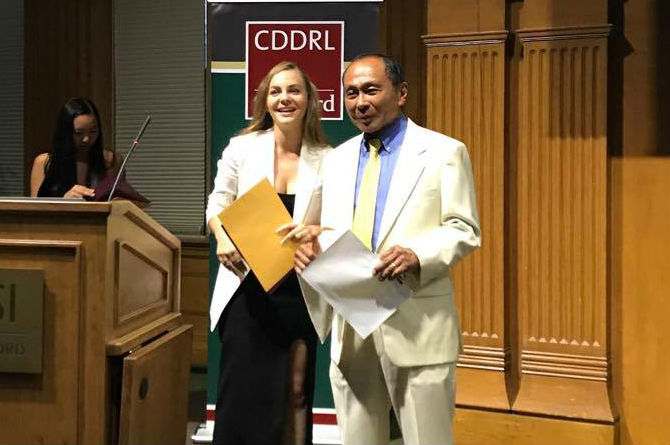
If you have strong institutions, it’s much easier to reform corruption,”
MP Olena Sotnyk (center) with Stanford’s Francis Fukuyama, one of the world’s foremost experts on democracy.
Sotnyk admitted that this is a difficult time for young democracies like Ukraine, when autocrats like Russian President Vladimir Putin are more united than the democratic world and democracies in Eastern Europe are backsliding.
Sotnyk is a member of the Lviv-based Self-Reliance Party and a member of the parliamentary committee on Eurointegration. Three months ago, she started a major effort to recruit more young people to run for both local and national office. She said that if 150 new young people aren’t brought into the next parliament in 2019, “we aren’t going to succeed.”
Liakh said the biggest lesson he brings back to Kyiv is that reforms take time to be sustainable and irreversible. “Emerging democracies should focus on the most important [issues] first: rule of law, transparency and public participation, and economic freedoms.”
Countries can be open and still corrupt, Liakh said, pointing to Ukraine’s high scores for openness on the Global Open Data Index and low scores on Transparency International’s Global Perceptions Index. “It means reform in one area worked and didn’t work in another,” he said in an August 6 interview.
Calling open data “a vital tool in the fight against corruption,” Liakh has made it a major focus at his organization, East Europe Foundation.
Since the Euromaidan, an enormous amount of information has become publicly available in an effort to fight corruption and give the public greater control. The public spending portal, established by former Finance Minister Natalie Jaresko and integrated with ProZorro, contains more than fifty-three million transactions and eighteen million state contracts and reports. One can find out how much a regional government spends on cognac, for example, with a few keystrokes. “It is a goldmine for investigative journalists and civil society,” Liakh has written. Another website monitors the registration data of Ukrainian companies and the judicial register to protect against raiders. All public officials must register their assets as well, which is yet another database to mine.
Liakh doesn’t think open data is a panacea, though, and readily admits that corruption continues to plague Ukraine. Civil society, journalists, and businesses must analyze the data before one should expect any corrective measures, he said.
To that end, East Europe Foundation is sponsoring a competition for journalists to use the data from spending.gov.ua to see who can break the most interesting stories. This an ongoing competition, and the next round ends in September.
Both Liakh and Sotnyk return to Kyiv with new ideas and a powerful network of experts and activists they can consult in the long struggle to transform Ukraine.
Melinda Haring is the editor of the UkraineAlert blog at the Atlantic Council. She tweets @melindaharing. Editor’s note: Haring is a member of the board of East Europe Foundation.
Further reading
The views expressed in UkraineAlert are solely those of the authors and do not necessarily reflect the views of the Atlantic Council, its staff, or its supporters.


The Eurasia Center’s mission is to enhance transatlantic cooperation in promoting stability, democratic values and prosperity in Eurasia, from Eastern Europe and Turkey in the West to the Caucasus, Russia and Central Asia in the East.
Follow us on social media
and support our work
Image: Victor Liakh, president of East Europe Foundation, participates in a discussion for the 2017 Draper Hill Fellows at Stanford University. Credit: Victor Liakh Facebook
